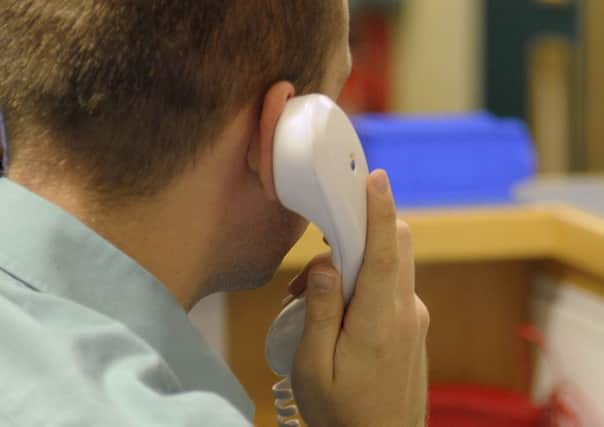Report nuisance calls and enjoy the peace


To say people are sick of being bombarded with nuisance calls that invade their privacy and waste their time would be an understatement.
Our campaign against unwanted calls and texts has more than 200,000 people backing it – making it easily one of our most popular campaigns.
Advertisement
Hide AdAdvertisement
Hide AdConsumers are bombarded with nuisance calls and texts, but they’re more than just a nuisance, they can be extremely distressing. Six in 10 (58 per cent) people say these calls discourage them from answering their phone and a third (33 per cent) say they have been intimidated by them
Yet we also know official complaints about unwanted calls and texts continue to rack up in the tens of thousands. This is why we are urging government, regulators and businesses to renew their efforts to call time on this everyday menace.
In December last year, an official nuisance calls and texts task force – chaired by Which? – outlined 15 recommendations to introduce tougher rules and more action to tackle these calls. However, our new analysis of data from the Information Commissioner’s Office shows that since the task force reported, there have been around 61,500 official complaints about nuisance calls and texts. This is the tip of the iceberg, with just 5 per cent of Scottish people who receive unwanted calls reporting them to the regulator, it means many more are still being received.
Despite a clear action plan from the nuisance calls task force, it’s disappointing that so many unwanted calls and texts are still getting through.
Our research also found part of the issue is that a quarter (23 per cent) of Scottish consumers, who have received an unwanted call but have not reported it, say they don’t know where to complain. We’ve made it easier by launching a new online complaints tool on our website so offenders can be identified and punished. We are urging consumers to go on the record and complain to give regulators the vital evidence they need to take action against companies breaking the rules.
People can also take practical steps to avoid being hassled by nuisance calls and texts. You should looking carefully at what you are agreeing to when they tick a consent box when renewing insurance or buying goods online, and never opt-in to third-party marketing. Always register landlines and mobiles with the Telephone Preference Service (TPS) and forward spam texts to your provider. You should never respond to an unwanted sales text as this alerts the sender that the phone is active.
But this shouldn’t all be down to consumers, we also need to see the government make senior executives accountable by law for their company’s nuisance calls, and require businesses to show their number when they call. Our new research found that eight in 10 Scottish people (81 per cent) support greater accountability over nuisance calls by directors being personally fined if their company breaks the rules.
Major companies like BT and SSE have publicly pledged their support to support our campaign by making a public commitment to tackle nuisance calls. This shows what companies can do to cut-off nuisance calls and we now need to see the government step-in to help others follow suit.
Advertisement
Hide AdAdvertisement
Hide AdWe also need to see regulators, especially the Information Commissioner’s Office, use its powers to hit companies flouting the rules with enforcement action, and also put people back in control of how their personal data is used.
It is estimated that at least one billion nuisance calls are received every year – it’s clear we need to see a concerted and sustained effort from government, regulators and industry to cut them off. We, too, can play our part by making sure we officially report these calls – it may feel that this won’t make any difference but if enough of us do it, the regulator gets the ammunition it needs to clamp down on cold callers.
People can report unwanted calls for free on the Which? website at www.which.co.uk/callingtime.
• Richard Lloyd is executive director of Which? www.which.co.uk